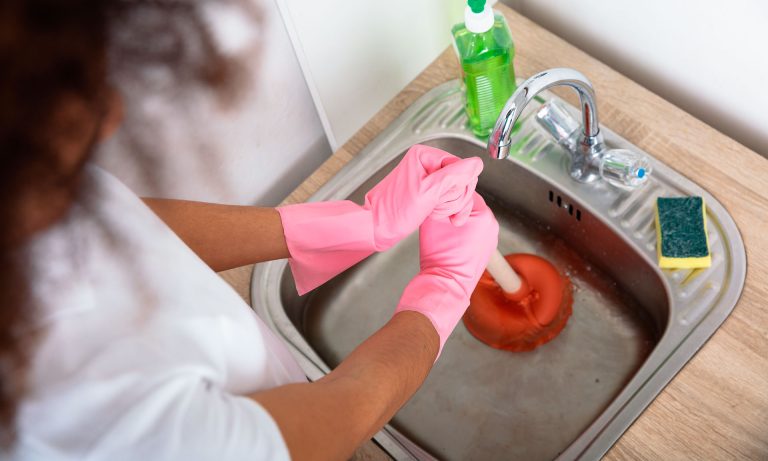Blocked drains can be a major inconvenience and can disrupt the smooth flow of everyday life. Whether it be a clogged sink, a backed-up toilet, or sluggish drainage in your shower, dealing with blocked drains is an issue that nobody wants to face. However, by implementing proactive maintenance strategies and following some simple tips from professionals like JR Burns Plumbing, you can prevent these pesky blockages from occurring in the first place. In this article, we will explore the importance of proactive drain maintenance and provide you with easy-to-follow tips to keep your drains flowing smoothly. By taking a proactive approach to drain care, you can save yourself time, money, and frustration in the long run. Get ready for uninterrupted drainage as we delve into ways to prevent blocked drains!
The Importance of Proactive Drain Maintenance
Proactive drain maintenance is crucial for ensuring the smooth flow of water and preventing blockages. By regularly inspecting and cleaning your drains, you can identify potential issues early on and address them before they turn into major problems. This proactive approach saves you time, money, and inconvenience in the long run.
Regular drain maintenance helps to prevent clogs caused by debris buildup such as hair, soap scum, food particles, or grease. By clearing out any obstructions before they become severe, you can maintain optimal drainage performance and avoid unpleasant odors caused by stagnant water in blocked pipes.
In addition to regular inspections and cleanings, simple tips like using drain strainers or guards can also go a long way in preventing blockages. These devices effectively catch large debris that would otherwise enter your drains and cause clogs. Overall, investing time and effort in proactive drain maintenance will undoubtedly pay off by promoting efficient water flow throughout your home or workspace.
Common Causes of Blocked Drains
Blocked drains can occur for various reasons, but some of the most common causes include hair buildup, grease and oil accumulation, and foreign objects getting stuck in the pipes. Hair is a frequent culprit in bathroom drains as it easily gets tangled with other substances such as soap scum and forms clumps that eventually clog the pipe. Grease and oil are often responsible for blocked kitchen sinks as they solidify over time and create stubborn blockages. Additionally, foreign objects like food scraps, toilet paper, or sanitary products can cause blockages if improperly disposed of down the drain.
To prevent these common causes of blocked drains, proactive maintenance is essential. Regularly cleaning your drains using vinegar or baking soda solutions helps to break down any potential build-ups before they become problematic. Installing drain screens or strainers in sinks and showers can help catch debris like hair or food particles before they enter the pipes. It’s also important to be mindful of what you dispose of down your toilets or sink drains by avoiding flushing large amounts of toilet paper at once or pouring grease down the sink.
Overall, being aware of these common causes allows you to take preventive measures to keep your drains flowing smoothly without any disruptions to daily life routines. By implementing simple tips like routine cleaning and proper disposal practices, you can significantly reduce the likelihood of encountering blocked drains in your household.
Simple Tips for Preventing Blocked Drains
Blocked drains can be a real hassle, causing disruptions in our everyday routines. To prevent these issues from occurring, it’s important to implement proactive maintenance strategies and follow some simple tips. Regularly cleaning out your drains is crucial to avoid blockages. This can be done by pouring boiling water down the drain or using a mixture of baking soda and vinegar. Additionally, being mindful of what goes down the drain is essential; avoiding pouring grease, oils, and large food particles into sinks can help prevent clogs.
Another useful tip for preventing blocked drains is installing drain screens or traps in your sinks and showers. These devices catch hair strands, food debris, and other small objects that could potentially cause blockages if they enter the pipes. It’s also advisable to schedule regular professional inspections of your plumbing system as part of your preventive maintenance routine. By taking these steps, you can save yourself a lot of time, money, and frustration that comes with dealing with blocked drains in the future.
Overall, with careful attention to preventive measures like cleaning, being mindful of what gets flushed down the drain, using screens or traps, and scheduling professional inspections when needed – you can ensure smooth flow ahead without any unexpected blocked drains disrupting your daily life.
Professional Solutions for Maintaining Smooth Flow
Blocked drains can cause significant disruptions and inconveniences in our daily lives. From clogged sinks to backed-up toilets, these issues can disrupt the smooth flow of everyday activities. To prevent and avoid such blockages, it is essential to adopt proactive maintenance strategies and follow simple tips. By doing so, you can ensure that your drains remain clear and functional at all times.
Implementing a proactive approach towards drain maintenance is crucial for preventing blockages. Regularly cleaning your drains is an effective way to remove any build-up of debris or substances that could potentially lead to clogs. Additionally, using drain covers and strainers can help catch hair, food particles, grease, and other materials before they enter the pipes.
In addition to proactive maintenance habits, there are some simple yet effective tips for maintaining smooth drainage. Avoid pouring any cooking oils or fats down the sink as they solidify and accumulate within the pipes over time. Properly disposing of hygiene products like wipes instead of flushing them down the toilet also reduces the risk of blockages. By following these professional solutions for maintaining smooth flow, you can save yourself from unnecessary frustrations caused by blocked drains in your everyday life.

